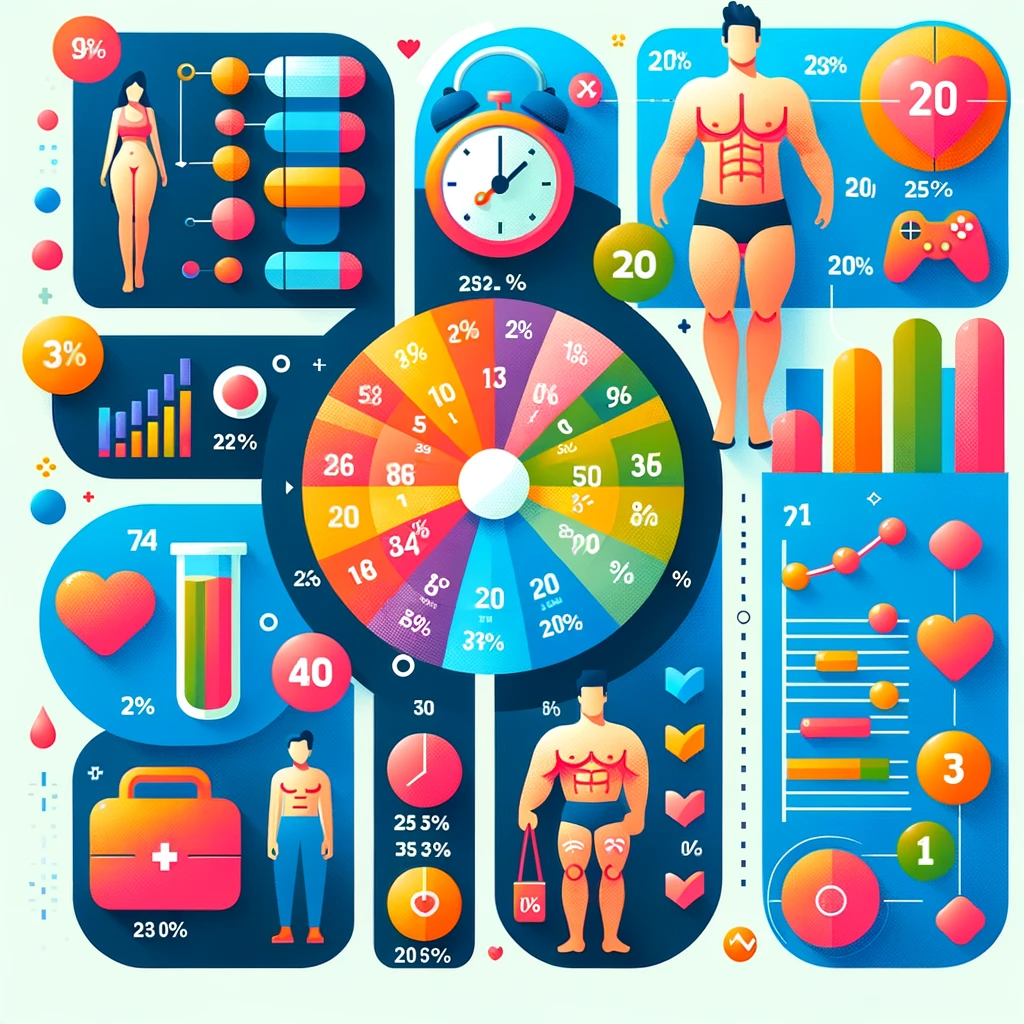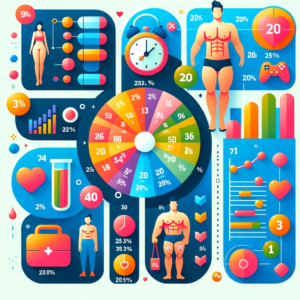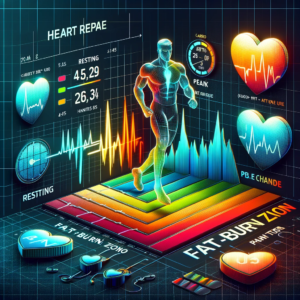
1. Introduction
- Importance of tracking fitness metrics
- Brief overview of the 9 key metrics
2. Body Composition: More Than Just Weight
- Understanding body fat percentage and muscle mass
- Tools for measuring body composition
3. Cardiovascular Fitness: Heart Rate Zones
- The significance of monitoring heart rate
- How to calculate and interpret different heart rate zones
4. Strength Levels: Tracking Progress
- Importance of measuring strength improvements
- Effective methods to track strength
5. Flexibility: The Overlooked Metric
- Benefits of flexibility in overall fitness
- Simple ways to assess and improve flexibility
6. Sleep Quality: The Unsung Hero of Fitness
- Correlation between sleep and fitness
- How to monitor and improve sleep quality
7. Hydration Levels: Keeping the Balance
- The impact of hydration on performance
- Tips for tracking and maintaining optimal hydration
8. Endurance: Measuring Stamina
- Importance of endurance in fitness routines
- Tools and methods to measure endurance
9. Caloric Intake and Burn: The Energy Equation
- Balancing calories consumed vs. burned
- Apps and devices for tracking caloric metrics
10. Stress Levels: Mind-Body Connection
- The effect of stress on physical health
- Techniques for monitoring and reducing stress
11. Conclusion
- Recap of the 9 fitness metrics
- Encouragement to track these metrics for improved fitness
Introduction
In the realm of fitness, the adage “what gets measured gets managed” rings particularly true. Tracking specific fitness metrics can be the key to reaching your health and wellness goals. This article delves into nine essential fitness metrics that go beyond the traditional scale, offering a comprehensive approach to health and fitness.
1. Body Composition: More Than Just Weight
Your body composition, comprising factors like body fat percentage and muscle mass, tells a more detailed story than weight alone. Understanding these metrics can guide your fitness journey more accurately. Tools like bioelectrical impedance analysis scales and DEXA scans provide insights into your body composition, helping tailor your fitness and nutritional plans to your body’s needs.
2. Cardiovascular Fitness: Heart Rate Zones
Cardiovascular fitness is crucial for overall health, and monitoring your heart rate is a window into your cardio health. Knowing your heart rate zones, from resting to peak, can optimize your workouts for fat burning, endurance building, or cardiovascular health. Using a heart rate monitor or smartwatch, you can track these zones and adjust your exercise intensity accordingly.
3. Strength Levels: Tracking Progress
Strength training is not just about lifting heavier weights—it’s about progression and improvement. Tracking your strength levels through metrics like the amount of weight lifted, repetitions, and your overall ability to handle increased resistance can significantly inform your fitness journey. Regularly monitoring these numbers ensures that your strength training is effective and evolving.
4. Flexibility: The Overlooked Metric
Flexibility is a critical component of physical fitness, often overshadowed by other metrics. It enhances performance, reduces injury risk, and improves recovery. Assess your flexibility through simple tests like the sit-and-reach or shoulder flexibility test. Incorporating stretching or yoga into your routine can significantly improve this vital metric.
5. Sleep Quality: The Unsung Hero of Fitness
Quality sleep is a cornerstone of good health and fitness. Poor sleep can sabotage your workouts and recovery. Track your sleep patterns using wearable devices or apps to monitor duration, depth, and quality of sleep. Implementing good sleep hygiene can dramatically affect your fitness results.
6. Hydration Levels: Keeping the Balance
Hydration directly impacts your physical performance and recovery. Maintaining optimal hydration levels is crucial for efficient bodily functions during exercise. You can track hydration by monitoring fluid intake, noting changes in body weight, or even observing urine color. Staying consistently hydrated is key to maximizing your fitness efforts.
7. Endurance: Measuring Stamina
Endurance is an essential metric for athletes and fitness enthusiasts alike. It reflects your body’s ability to sustain prolonged physical activity. You can measure endurance through timed exercises, distance tracking, or assessing how your performance improves over time in activities like running, cycling, or swimming.
8. Caloric Intake and Burn: The Energy Equation
Balancing the calories you consume with those you burn is fundamental to achieving fitness goals. Track your caloric intake using food diary apps and monitor your caloric burn through activity trackers. Understanding this energy equation helps in managing weight, building muscle, or improving overall health.
9. Stress Levels: Mind-Body Connection
Stress can have profound effects on your physical health and fitness levels. High stress can hinder recovery, disrupt sleep, and affect your mood and motivation. Techniques like mindfulness, meditation, and yoga, along with tracking stress through wearable devices, can provide insights into your stress levels and help manage them effectively.
Conclusion
Monitoring these nine fitness metrics can transform your approach to health and fitness, leading to more informed decisions and better results. Whether it’s tracking your heart rate for cardiovascular health, measuring your sleep quality, or keeping an eye on hydration levels, each metric plays a crucial role in a well-rounded fitness regime. Start tracking these metrics today and take control of your fitness journey.









